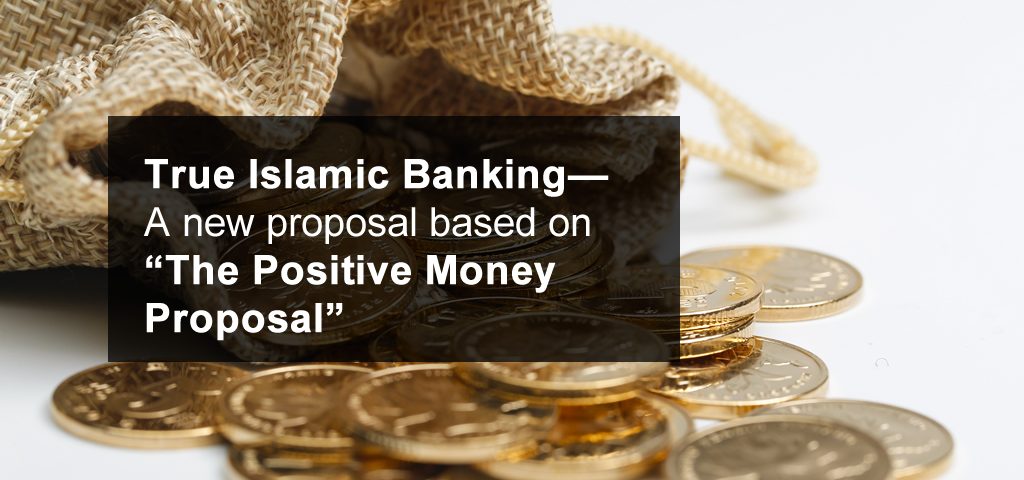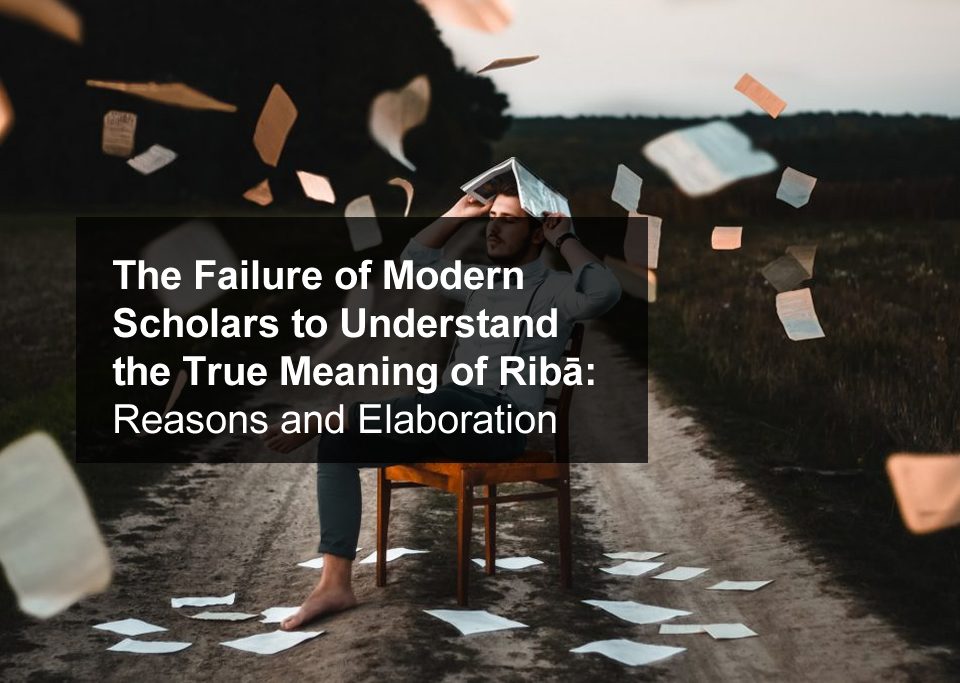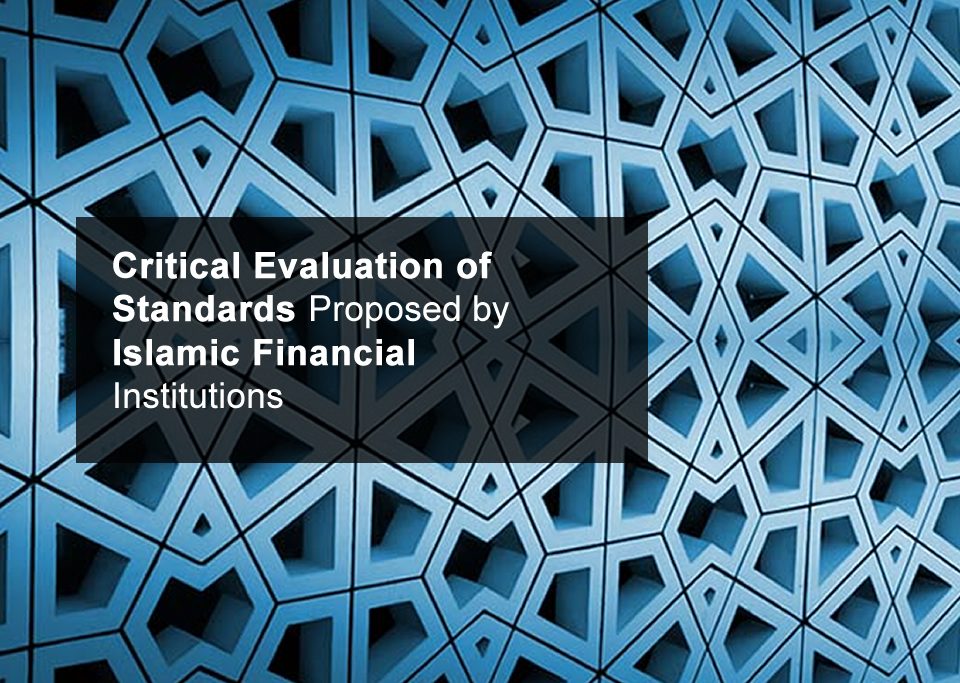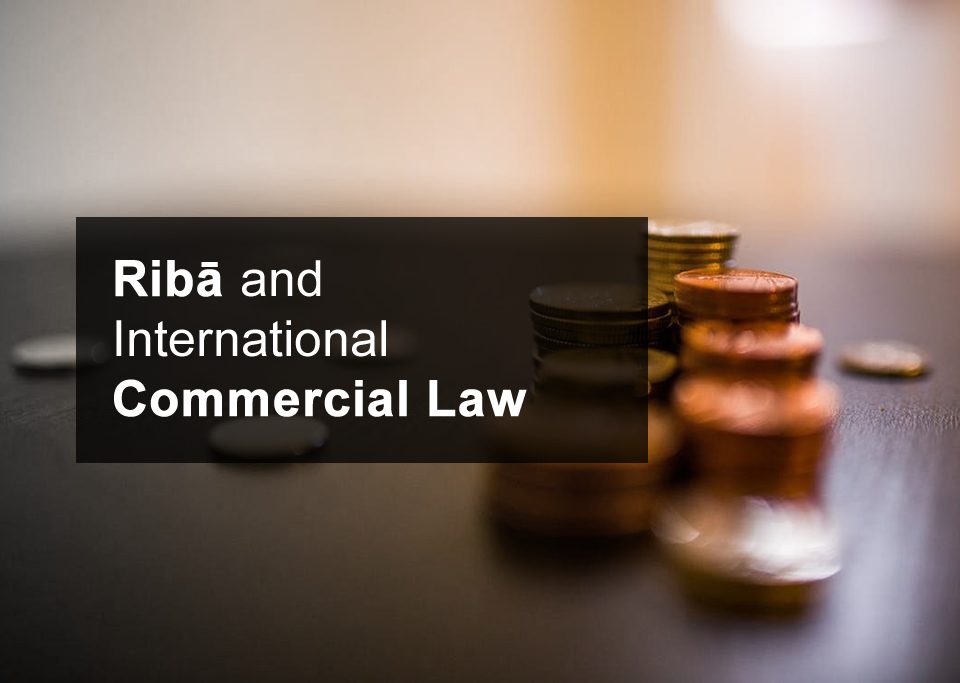True Islamic Banking—A new proposal based on “The Positive Money Proposal”
TRUE ISLAMIC BANKING—A NEW PROPOSAL BASED ON “THE POSITIVE MONEY PROPOSAL”
Imran Ahsan Khan Nyazee
The Positive Money proposals and the 100% reserve debates, which have almost a century of discussions and research behind them, have now gathered considerable momentum. A cursory perusal of the proposals shows that the features contemplated, with some modifications, may offer a solution for true Islamic banking that is not only free of ribā, but one that promotes the objectives of the Sharī‘ah. Further, the final design, after incorporation of the sharī‘ah rules, will satisfy the ribā provisions laid down by the earlier jurists. These provisions are stated in the section below. The section following it will incorporate these provisions into “ The Positive Money Proposal.”
The excellent proposal, mentioned above, was written by Andrew Jackson, Ben Dyson and Graham Hodgson, The Positive Money Proposal (2nd April 2013). This proposal as well as other proposals are found on positivemoney.org, along with many videos and other resources.
1. Rules About the Prohibition of Ribā
The Qur’ān gives the following warning about ribā: “If ye do it not [that is desist from charging ribā], take notice of war from Allah and His Messenger. But if ye repent, ye shall have your capital sums: Deal not unjustly, and ye shall not be dealt with unjustly.” [Qur’ān 2:279] I have worked on the problems of ribā, which is prohibited by the Qur’ān and the Sunnah of the Prophet (peace be upon him), for almost three decades now. In simple words, it is interest charged by banks or money-lenders. In this document, I will not call it “interest,” instead I will simply reproduce a few rules stated by the earlier Muslim jurists as derived from the Qur’ān and the Sunnah. I have come to understand these rules after having written three books on the subject. After examining the rules, it will be easy to define ribā.
1.1 Statement of Rules
To understand the rules, we will consider two transactions in currencies. In the first transaction, 100 units of currency “A” will be exchanged with 110 units of the same currency “A” with the 100 being paid at once and the 110 being paid in return after a delay of one year. A modern mind will call this a loan transaction at 10% per annum.
Rule 1: Islamic law does not permit this transaction, and issues two commands: (1) Make the two sides equal, that is, exchange 100 for 100. (2) Exchange the two counter-values at once, that is, make it a spot transaction. It is obvious that you will not undertake what is left of the transaction. [See the Tradition of the Six Commodities.]
In the second transaction, 100 units of currency “A” will be exchanged with 200 units of currency “B” with currency “A” being paid at once and currency “B” being paid in return after a delay of one year. A modern mind will call this a loan transaction at interest in different currencies, under the pretext of exchange.
Rule 2: Islamic law does not permit this transaction, and issues a single command: Exchange the two counter-values at once, that is, make it a spot transaction. It is obvious that you may or may not wish to undertake what is left of the transaction as it is now a simple currency exchange (at absurd rates). [See the Tradition of the Six Commodities.]
1.2 Conclusions Drawn From the Rules
The two rules stated above are based on the Sunnah, which is a binding source for the Muslims, and you can see that prohibited ribā stands defined and explained. The two rules are sufficient to run our banking system. There is, however, a third rule concealed in the first transaction, which needs to be derived.
In the first transaction, when the first command, which requires making the two amounts equal, is implemented, an apparently harmless transaction remains. This is paying 100 units of currency “A” today and getting back 100 units of currency “A” after one year. A modern mind will say that this is an interest-free loan transaction. Yes, but Islamic law does not allow it, and issues the command “exchange at once.” We, therefore, have a third rule, which we may state as follows:
Rule 3: Loans are not allowed in Islamic law for commercial purposes, whether or not interest is charged on them. [The reason is that one person is using the other person’s money, without compensation, and this is not fair; hence it is prohibited.]
By “commercial purposes” we mean that if the loan is converted to a charitable loan, it will be allowed. This is done with four stipulations: (1) A period of repayment cannot be fixed. (2) No interest, benefit or gift, in lieu of the contract, is to be made part of this contract. (3) The donor may, if he so wishes, ask for the return of the amount the next day, but it is recommended that he do so when the borrower is enjoying financial ease. (4) The borrower of a charitable loan may use it for consumption or for business or for any other lawful purpose. This type of loan is a private loan or is part of a system of charities; it is not linked to the banking system.
2. Accommodating the Rules Within the Proposal
The rules stated above contain a number of provisions that will generate a monetary and banking system that is likely to differ from the proposal made by the learned authors, but the objectives of the proposal and the Islamic version formulated here will be almost the same. The final decision, however, will be left to the Islamic law experts as well as bankers. The main features will be stated in points below. Where possible the relevant provisions of “The Positive Money Proposal” will be referred to:—
- No bank in the Country will be allowed to lend money. This means that the power of creating new money will be taken away from commercial banks. Item 7 of the Positive Money Proposal says: “With banks no longer able to create deposits through lending, the Bank of England would be the only institution able to alter the money supply.” In our proposal, lending will not be permitted at all. The Positive Money also says in item 9 that “The Bank of England would increase the money supply by either: Granting money to the government to be spent into circulation, as above, or lending money to the banks to on-lend to businesses (to ensure an adequate supply of money for businesses to borrow).” In our proposal, this is not possible as lending is not allowed at all (see rules above). The only option will be investment, as explained below. Despite this difference, the main objective is the same. The first Objective of the Positive Money Proposal says: “To prevent banks from being able to create new money, in the form of bank deposits, in the process of making loans (or buying assets). As bank lending would no longer increase the amount of money in the economy, the money supply would be stable and permanent ….” This is also an objective of our proposal. We may recall here that lending is not allowed in Islamic law; the only form of lending is in the form of charitable loans, as explained in the previous section. Debts arise in the Islamic system due to credit sales and other transactions, and not through commercial lending.
- All money, paper or digital, will be created by the Central or State Bank, and will be exactly equivalent to the gold and silver reserves held by the Central Bank. The money may be called dinars and dirhams for gold and silver, respectively. Item 1 of the Positive Money Proposal says: “Commercial banks’ demand deposits would be removed from their balance sheets and converted into state-issued currency held at the central bank. Banks would be prohibited from holding or creating new demand deposits on their balance sheets” Item 3 of the same proposal says: “Thus, unlike in the current system where two types of money circulate separately—reserves created by the central bank and deposits created by commercial banks—in the reformed system there would be just one integrated quantity of central bank money used by banks, businesses and members of the public alike.” The difference will be that money in our proposal will be created on the basis of the gold and silver reserves held by the central bank. What we mean by issuing currency on the basis of gold and silver is exactly as proposed by Murray N. Rothbard, The Case for a 100 Percent Gold Dollar (Alabama: Ludwig von Mises Institute, 2001). Further, the notes issued, on the basis of gold and silver, will not be acknowledgements of debt like IOUs. They will be as Rothbard says: “In sum, I am advocating that the law be changed to treat bank notes and deposits as what they are in economic and social fact: claims, warehouse receipts to standard money—in short, that the note and the deposit holders be recognized as owners-in-law of the gold (or, under a fiat standard, of the paper) in the bank’s vaults. Now treated in law as a debt, a deposit or note should be considered as evidence of a bailment. In relation to general legal principles this would not be a radical change, since warehouse receipts are treated as bailments now. Banks would simply be treated as money warehouses in relation to their notes and deposits.”
- All new money, paper or digital, will be created by the Central Bank on the basis of additions to the reserves of gold and silver. Likewise, money will be decreased on the basis of gold and silver flowing out of the reserves. Money will not be created without supporting reserves, even if it means a restricted money supply. Items 8, 9 and 10 of the Positive Money proposal deal with the increase and decrease of money supply. Item 8 says: “The decision on whether to increase or decrease the money supply would be taken by a completely democratically accountable, independent and transparent body, the Monetary Creation Committee, in line with a democratically mandated target set by government.” In our case, the money supply will increase or decrease on the basis of changes in the gold and silver reserves held.
- Commercial banks will have two types of accounts as stated in the “Positive Money Proposal”. There will be “Transaction Accounts” handling only financial transactions where currency will be held in the form of Wadia‘ah/Amanah, that is, deposits. These accounts will not give any interest or profits, and will entail basic service charges.
- There will be “Investment Accounts” for every type of investment. Thus, there may be corporate accounts, mushārkah accounts, muḍarbah accounts, and so on. Investment will be mostly in equity. Investment accounts will earn profit and not interest. For purpose of these accounts, banks will be like agents or brokers. (Existing relationship is one of lender/borrower only.) Item 4 of the Positive Money Proposal deals with these accounts. In our case, lending will not be possible through investment accounts.
- Individuals will be able to convert their paper and digital currency into gold and silver coin whenever they wish.
- All surplus foreign currency, not used for imports and other payments, will be converted into gold and silver and added to the reserves. Likewise, purchase of foreign currency will reduce the reserves. The experts may have more to say about this point.
- As already stated, there will be no loans of any kind through the banks. All funds required for the poor will be granted by the government through taxes and Zakat. The government may grant charitable interest free loans through these funds. These funds will be maintained at the Central Bank in a separate account. Charitable loans will not be made through banks.
- The Government will meet its needs through taxes and through the launching of profit giving projects that will seek funds from the “investment accounts,” that is, the government will compete for funds. Instead of bonds and sukuk, the government should make all large projects financially feasible, and seek funds from the “investment accounts”.
The above is the bare minimum that guarantees that the proposed system will be Islamic. There are, of course, many more details for which the reader is requested to turn to the sources mentioned in the next final section.
3. Task for Researchers and Experts
Muslim researchers, whatever their specialization, must realize that this is an opportunity for introducing true Islamic banking. They must devote time to it and make a contribution. The current Islamic banking is not “Islamic” in any sense of the term.
The resources for positive money proposals and about 100% reserve banking are available on the following sites:
See also videos like: World watches ahead of Swiss vote on “radical” sovereign money plan (https://www.youtube.com/watch?v=EnOn2mAfh-s)
In particular, see the video about the referendum held in Switzerland in June, 2018: Swiss Vollgeld-Initiative—Lessons Learnt after the Referendum on Sovereign Money (https://www.youtube.com/watch?v=6I_u1pn0BIM)
Books on ribā and money by Imran Nyazee:
- The Concept of the Ribā
- The Prohibition of Ribā Elaborated
- Money Exchange, Loans and Ribā
See also Irving Fisher, 100% Money (New York: Adelphi Company, 1936).




